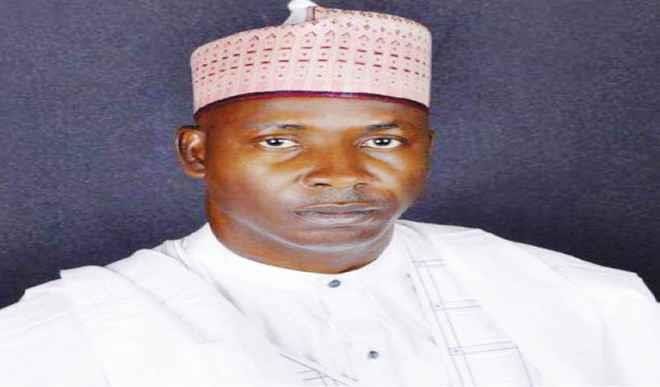Stakeholders explore ways to sanitise movie industry
The National Film and Video Censors Board (NFVCB) and stakeholders in the movie industry’s value chain converged on Yankari Games Reserve in Bauchi, to discuss issues related to the operations of the industry. For three days, stakeholders including actors, the academia, script writers, producers as well as students selected from various institutions rubbed minds to […]


The National Film and Video Censors Board (NFVCB) and stakeholders in the movie industry’s value chain converged on Yankari Games Reserve in Bauchi, to discuss issues related to the operations of the industry.
For three days, stakeholders including actors, the academia, script writers, producers as well as students selected from various institutions rubbed minds to find ways on how to use the film industry to promote peace and economic development in the country.
The gathering was part of the NFVCB Consumer Forum themed, ‘A Case for Peace, Economic Development and Social Engineering.’
The forum started on January, 29th 2018 with a tour of the Reserve by the participants to see its attractions and facilities.
The next day, the participants assembled at the reserve’s large conference hall and a keynote address was delivered by the NFVCB’s Executive Director, Alhaji Adebayo Thomas.
He said the forum was convened in Bauchi State and at the Yankari Games Reserve in order to explore an additional avenue where the film industry would help promote peace, against the backdrop of the security situation in the North East where Bauchi State is located.
He added that the theme of the forum was also designed to present the realities of the region and ways to bring a positive change in the country through the movie industry.
He said, “For some time now, the lingering insurgency in the North East has brought untold hardship on the people. The Federal Government under President Muhammadu Buhari as Commander-In-Chief of the Armed Forces, has so degraded the activities of the insurgents. The question then arises – what is to be done to fill up the vacuum being created by the insurgents? What is to be used to keep idle minds and hands occupied to prevent reoccurrences?”
Thomas said these questions prompted the Board to convene the forum in order to draw the attention of Nigerians to the abundant opportunities available in many areas in the movie industry which can provide millions of jobs.
“These technical areas include costume design, props making and make-up design. In layman’s language, we are talking of tailoring, carpentry and make-up skills, when customised for the demands of the film industry,” he said.
The NFVCB executive director informed that as part of the effort to ensure the protection of intellectual property rights, it is partnering with entities like De La Rue and the Nigeria Security Printing and Minting (NSPM) to ensure works by stakeholders are secured.
The event also featured the book presentation ‘Introduction to Film and Video Production’ authored by an artist, Dele Osawe and published by the NFVCB.
Presenting a paper titled, ‘Social Responsibility: The Role of Producers, Directors and Investors in the Nigerian Film Industry’ Dr Rashida Liman, a lecturer in the Department of Theatre and Performing Arts, Ahmadu Bello University, Zaria, said movie producers and directors must be conscious of the need to contribute to societal development through their works.
She said they should in the course of their works reflect the values, dignify socio-cultural and religious beliefs as well as market the culture, people and traditions of Nigerians.
“To be socially responsible, the director in Nigerian Movie industry must first identify one aspect of Nigerian lives that promote Nigeria,” she said.
Professor Victor S. Dugga of the department of Theatre and Media Arts Federal University, Lafia, Nassarawa State raised some key issues in the Nigerian movie industry in a paper titled, ‘Nigerian Movie Industry: Peace, Economic Development and Social Engineering.’
He stated that the Nigerian movie industry as an industry in transition must take cognisance of the changes taking place in technology, economy and the social spaces.
According to him, the industry has recently been affected by insecurity in many parts of the country which forced many players out of business or reduced their income and coverage.
He charged stakeholders on the need for more creative engagements to promote peace and good values.
Stakeholders, while hopeful for a better business and peaceful environment in the industry, identified challenges and suggested ways of bringing sanity and solving its problems.
Drawing analogies between the past and present practices in the industry, they largely attributed the problems facing the industry to the advancement in technology which aided the problems of piracy.
They also noted that weak legislations to punish offenders, non-severe penalties as well as presence of non professional who does everything to get money and lack of government’s genuine commitment as the major problems of the industry.
At one of the interactive sessions, the National President of MOPPAN, Abdullahi Usman said, filmmakers in Kannywood and Nollywood must allow professionalism be the guiding principle of their operations.
Kannywood actor, Sani Danja called for provision loans. He said the lack of funding is the major challenge facing the industry and hindering its development and would reduce piracy among others illegalities.
Ibrahim Amarawa, the Borno State MOPPAN chapter chairman said that insurgency had almost crippled the movie industry in the North East especially Borno State.
He said, “Although we don’t produce many movies in the state, we have active players in the industry that were forced to relocate elsewhere because of the poor security situation.”
At a separate interactive session of the forum with students, some professionals took them through using their talents, technology and other opportunities to become entrepreneurs.
They were tutored on how to develop ideas into a good business plan and how to develop film making businesses from the scratch and how to create partnerships among peers who share similar visions and ideas.
